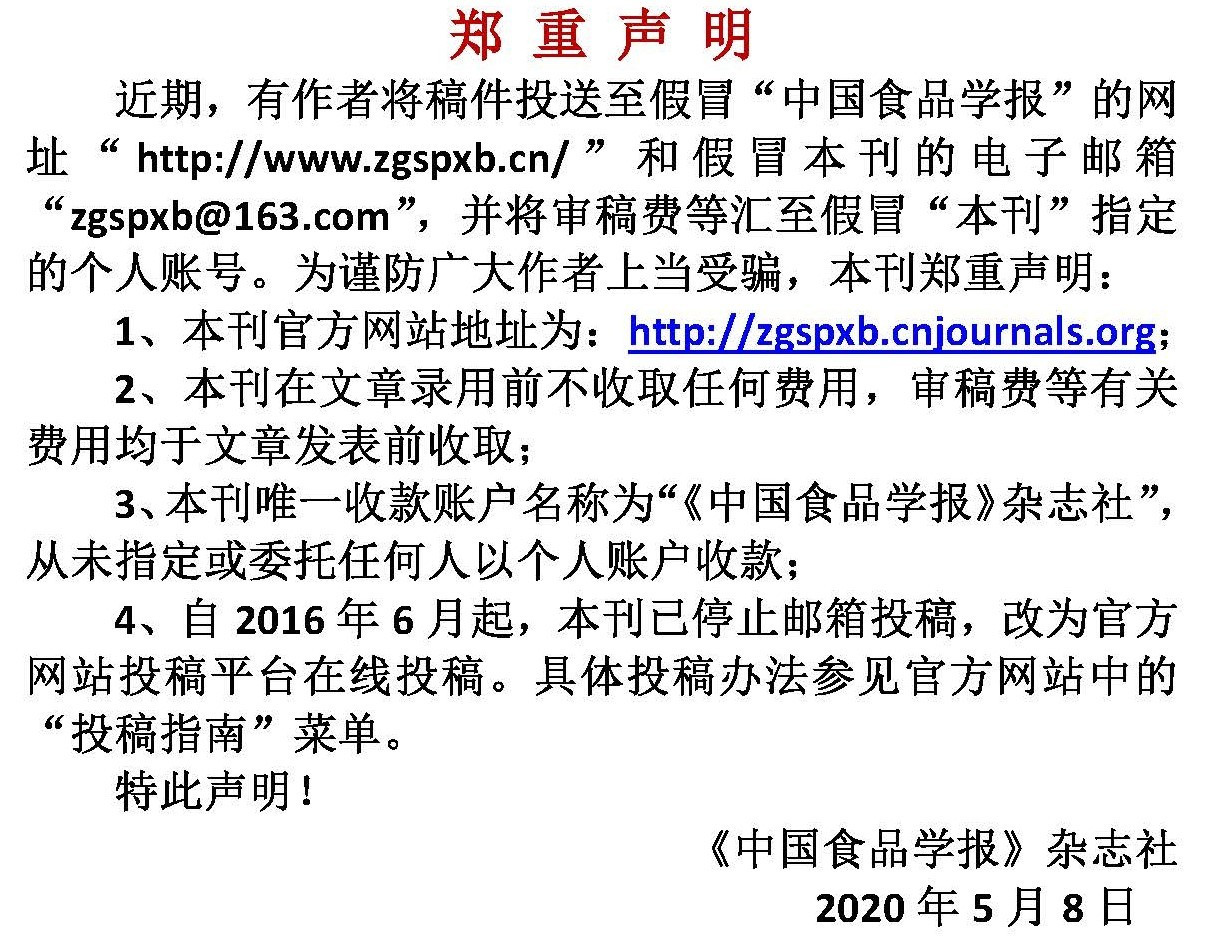基于肽组学的瑞士乳杆菌酪蛋白水解差异分析
作者:
作者单位:
(江南大学食品学院 江苏无锡 214122)
作者简介:
张心怡(1996—),女,硕士生
通讯作者:
中图分类号:
基金项目:
国家自然科学基金项目(31871829)
Comparative Analysis of Casein Hydrolysis in Lactobacillus helveticus Based on Peptidomics
Author:
Affiliation:
(School of Food Science and Technology, Jiangnan University, Wuxi 214122, Jiangsu)
Fund Project:
引用本文
张心怡,姜杨,刘小鸣,赵建新,陈卫.基于肽组学的瑞士乳杆菌酪蛋白水解差异分析[J].中国食品学报,2022,22(6):53-61
复制分享
文章指标
- 点击次数:
- 下载次数:
- HTML阅读次数:
历史
- 收稿日期:2021-06-08
- 最后修改日期:
- 录用日期:
- 在线发布日期: 2022-07-19
- 出版日期:
文章二维码

版权所有 :《中国食品学报》杂志社 京ICP备09084417号-4
地址 :北京市海淀区阜成路北三街8号9层 邮政编码 :100048
电话 :010-65223596 65265375 电子邮箱 :chinaspxb@vip.163.com
技术支持:北京勤云科技发展有限公司
地址 :北京市海淀区阜成路北三街8号9层 邮政编码 :100048
电话 :010-65223596 65265375 电子邮箱 :chinaspxb@vip.163.com
技术支持:北京勤云科技发展有限公司
